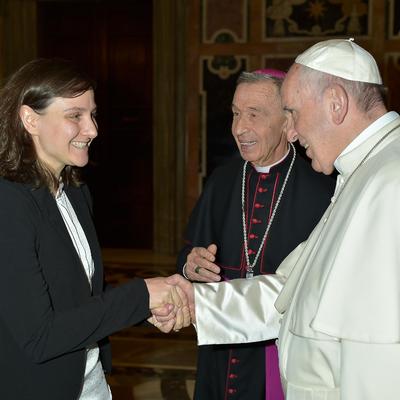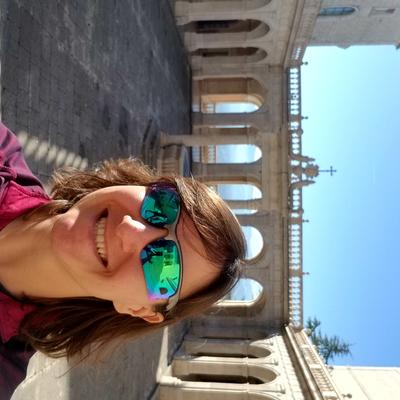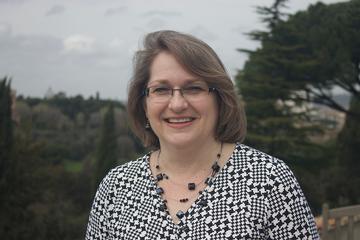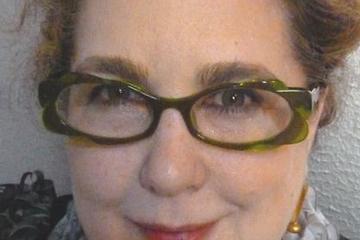
Dr. Susan Mulheron, Chancellor for Canonical Affairs Archdiocese of Saint Paul and Minneapolis, talks about "the gifts laity can give in decision-making in the Church," how the "knowledge and experience" gained in Rome is directly applicable to her work in the Church.
What was your area of study and which pontifical university did you choose and why?
I completed my coursework and residency for a doctorate in canon law at the Pontifical University of the Holy Cross (Santa Croce). I already had a licentiate in canon law from the Catholic University of America, but was seeking the Rome experience for the doctorate. The Lay Centre was recommended to me by my bishop as a “supportive environment,” so I was thrilled when I received news that there was space for me to live there during my time in Rome. My bishop was right: I found much more than just a place to live at The Lay Centre. I found a community, people to answer my questions and assist me with some of the challenges related to living in Rome, and instant connections to the Roman academic and spiritual life.
What opportunities did your studies offer and how are your studies and research at the pontifical university related to the work you do today?
My time in Rome and at Santa Croce totally opened up my world. I gained a new perspective on the universal Church and met many new friends and professional connections from across the world. I continue to rely on the lessons learned and the network I gained in my work as the chancellor for canonical affairs for my archdiocese.
What advice would you give lay women who would like to study in Rome?
I definitely benefitted from having work experience and a solid foundation in my field before studying in Rome. However, my time in Rome was limited because of my commitments at home. Whether you study in Rome before getting into your professional life or later on, there are benefits and drawbacks to both. In any case, The Lay Centre is hands down the best place to live in Rome for lay people.
How did your studies help you to become more able to serve the Church and society?
My studies in Rome gave me access to some of the most important scholars and practitioners in canon law in the Church today. I was also able to study in the Vatican Apostolic Archives, which gave me access to historical documents that are otherwise not available for study. All of this has offered knowledge and experience directly applicable to my work in the Church that I could not have received anywhere else.
What do you think is an area of most pressing concern in your area of study or of your profession?
My area of study and the focus of my professional work is the canonical legislation on sexual abuse in the Church. I definitely believe this continues to be one of the most important issues in canon law that needs ongoing attention and development.
What, in your opinion, is the importance of the role of laity in the Church at a decisional level?
The laity are the heart of the Church. It’s essential to have their perspective both represented and understood when decisions are made. I think in general this is something that bishops and priests also believe in and support. The challenge is how to do this effectively. It’s not a good decision-making process or fair to the laity involved to expect them to give appropriate advice on a decision when they don’t have access to all the information they need about the situation. Because of this, laity who are employees of the Church often are in the best position not only to give advice to influence decisions but be the decision-makers as well. This is especially true for canonists, who often serve in a key advisory role for bishops. In most cases, the gifts laity can give in decision-making in the Church are the perspective and expertise they have precisely because of their lay vocation as members of the Body of Christ, living in the world. How to engage the laity in decision-making in the Church relies on the art of effective consultation, which requires training, patience and listening to the Holy Spirit. This is an investment that will always reap great fruit in the Church.
Dr. Susan Mulheron is a canon lawyer, serving as Chancellor for Canonical Affairs, Archdiocese of Saint Paul and Minneapolis. In addition to her regular work for the archdiocese, she serves as canonical adviser on sexual abuse and clergy misconduct issues in the Church at the local, regional and national levels. Susan and her husband Jeremiah adopted a baby girl in January 2021 and are loving the adventure of parenthood.
Photos courtesy Dr. Susan Mulheron. We also asked our alumnae to share a special photo from their Lay Centre days. Susan shared the ones below.




